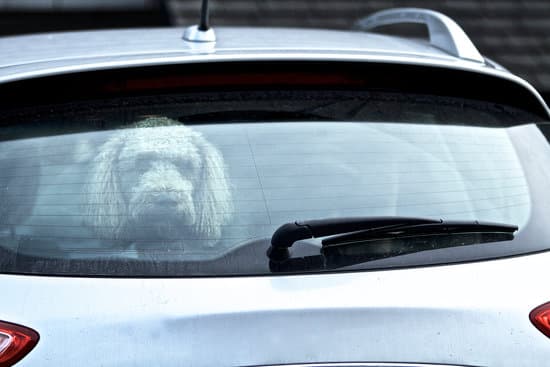For many dog owners, the thought of their beloved pet forgetting their potty training after boarding can be a real concern. The impact of boarding on a dog’s potty training is a common worry for pet parents, especially if their furry friend has been successfully trained before. In this article, we will explore the potential effects of boarding on a dog’s potty training and provide tips for maintaining consistent habits.
When dogs are placed in a new environment, such as a boarding facility, they may experience stress and anxiety that could potentially affect their memory of potty training. This raises the question: do dogs forget potty training after boarding? We will delve into how these factors can impact a dog’s ability to maintain their potty training routine.
Changes in routine and environment are also significant factors that can influence a dog’s potty training. Whether it’s due to the presence of unfamiliar smells or the lack of familiar cues, these changes can lead to confusion and setbacks in a dog’s potty habits. It’s important for pet owners to understand these potential challenges and be prepared to address them proactively to help their furry companions maintain consistent potty behavior.
The Effects of Stress and Anxiety on a Dog’s Potty Training Memory
When a dog is subjected to the stress and anxiety of being boarded, it can have a significant impact on their potty training memory. This can cause them to experience setbacks or even forget their training altogether. The unfamiliar environment, absence of their owner, and changes in routine can all contribute to heightened stress levels in dogs, ultimately affecting their ability to remember their potty training.
There are several ways in which stress and anxiety can affect a dog’s potty training memory:
1. Development of new negative behaviors: Stress and anxiety can lead to the development of new negative behaviors such as marking, accidents, or refusal to eliminate in designated areas.
2. Inhibition of learned behavior: Dogs may become so overwhelmed by stress and anxiety that they are unable to recall or exhibit the potty training habits they had previously learned.
3. Regression in progress: Some dogs may exhibit regression in their potty training progress, reverting back to old habits or exhibiting inconsistent behavior.
To mitigate the effects of stress and anxiety on a dog’s potty training memory after boarding, it is crucial for owners to provide comfort, reassurance, and consistency upon their return home. By understanding how stress impacts a dog’s behavior, owners can better support their pets in re-establishing their potty training routines.
Ultimately, pet owners must be patient and understanding when helping their dogs readjust after boarding. It is important not to rush the process or become frustrated with setbacks, as this can further exacerbate a dog’s stress levels and hinder their progress in re-establishing their potty training habits. With time, patience, and consistent reinforcement of positive behavior, most dogs will be able to re-establish their potty training after boarding without any long-term issues.
How Changes in Routine and Environment Can Impact Potty Training
When a dog goes through boarding, there are significant changes in routine and environment that can impact their potty training. It’s important to understand how these changes can affect a dog’s ability to remember their potty training habits and what steps can be taken to minimize any setbacks.
The following are some factors that can affect a dog’s potty training after boarding:
- Change in Routine: Boarding often means a change in the daily routine for dogs. This can include different feeding times, walking schedules, and overall activities. All of these changes can disrupt a dog’s usual potty schedule and lead to accidents in the house.
- New Environment: Dogs are creatures of habit, so when they are placed in a new environment such as a boarding facility, it can be overwhelming for them. They may have trouble adjusting to new smells, sounds, and even the layout of the space. This unfamiliarity can lead to confusion about where they should go potty.
- Stress and Anxiety: Boarding itself can be stressful for dogs, especially if they are not used to being away from their owners or if they have had negative experiences with boarding in the past. The stress and anxiety that accompany being in a new place can contribute to forgetfulness regarding potty training habits.
To mitigate these impacts on a dog’s potty training after boarding, it’s important for owners to take proactive measures to help their pets readjust effectively.
Tips for Maintaining Potty Training After Boarding
Creating a Familiar Environment
When returning home from boarding, it’s important to create a familiar environment for your dog. This can help reduce stress and anxiety and make it easier for them to remember their potty training. Set up their favorite bed, toys, and feeding area just as it was before boarding. This sense of familiarity can go a long way in helping your dog remember their potty training routine.
Re-Establishing Routine
After boarding, your dog’s routine may have been disrupted. It’s crucial to re-establish their routine as soon as possible to help them get back on track with their potty training. Take them out for bathroom breaks at the same times each day, just as you did before boarding. Consistency is key in helping them remember their potty training habits.
Positive Reinforcement and Patience
During this transition period after boarding, it’s essential to remain patient with your dog as they readjust to their potty training routine. Use positive reinforcement such as treats and praise when they go to the bathroom in the correct spot. This will not only reinforce good behavior but also help alleviate any anxiety or stress they may be experiencing after boarding.
By following these tips for maintaining potty training after boarding, you can help your furry friend quickly readjust to their routine and maintain good bathroom habits. Remember that consistency, patience, and positive reinforcement are key in ensuring that your dog does not forget their potty training after being boarded.
The Importance of Consistency and Reinforcement in Potty Training
Consistency is key when it comes to maintaining a dog’s potty training, especially after boarding. A sudden change in environment and routine can be stressful for dogs, leading to potential regression in their potty training habits. As pet owners, it is crucial to understand the impact of consistency on a dog’s ability to retain their potty training skills.
The Role of Consistency
Consistency plays a significant role in reinforcing a dog’s potty training. When a dog is boarded, they are placed in an unfamiliar environment with different schedules and routines. This disruption can lead to confusion and anxiety, causing the dog to forget their potty training. By maintaining consistent bathroom breaks and reinforcing positive behavior, pet owners can help their dogs feel more at ease and retain their potty training skills.
Reinforcement Techniques
Positive reinforcement is an effective tool in maintaining a dog’s potty training after boarding. Offering rewards such as treats or verbal praise when the dog successfully goes to the bathroom in the appropriate area can help solidify good habits. Additionally, avoiding punishment for accidents during this transition period is crucial for reducing stress and anxiety in dogs.
Establishing Routine
Establishing a consistent routine after boarding is essential for helping dogs readjust to their potty training schedule. This includes regular feeding times, designated bathroom breaks, and familiarizing them with the new environment. With patience and positive reinforcement, pet owners can help their dogs re-establish their potty training habits seamlessly.
By recognizing the importance of consistency and reinforcement in potty training, pet owners can guide their dogs through the challenges of adjusting after boarding without experiencing setbacks in their potty training progress.
Understanding the Role of Positive Reinforcement in Potty Training
Positive reinforcement plays a crucial role in maintaining and re-establishing potty training after a dog has been boarded. When a dog is rewarded for exhibiting the desired behavior of using the designated potty area, it helps to strengthen the association between that behavior and a positive outcome. This can be especially important after a period of boarding, where the dog may have experienced stress and anxiety due to being in a new environment.
Research has shown that dogs respond well to positive reinforcement during potty training. Whether it’s through verbal praise, treats, or affectionate pets, these rewards can help solidify the desired behavior. After boarding, it’s important for pet owners to continue using positive reinforcement techniques to reinforce good potty habits and reassure the dog as they readjust to their home environment.
Consistency is key when it comes to utilizing positive reinforcement for potty training. By consistently rewarding the dog for using the appropriate bathroom spot, they are more likely to remember their potty training even after being boarded. Additionally, maintaining a routine can also aid in this process by providing structure and stability for the dog as they transition back into their home environment.
It’s not uncommon for dogs to experience some hiccups in their potty training after being boarded, but with patience, consistency, and positive reinforcement, pet owners can help their furry companions readjust and remember their potty training habits. Understanding the role of positive reinforcement and implementing it effectively can greatly contribute to a successful transition back to regular potty habits post-boarding.
| Positive Reinforcement Benefits | Benefits of Consistency |
|---|---|
| Strengthens desired behavior | Provides structure and stability |
| Reassures the dog after boarding | Aids in memory retention of potty training |
Common Challenges in Re-Establishing Potty Training After Boarding
After boarding, many dog owners may find that their pets have regressed in their potty training. This can be a frustrating experience, but it is important to understand that it is not uncommon for dogs to forget their potty training after being in a different environment for an extended period of time. There are several factors that contribute to this issue, including stress and anxiety, changes in routine and environment, and the need for consistent reinforcement.
One of the primary factors that can lead to a dog forgetting its potty training after boarding is stress and anxiety. Being away from their owners and familiar surroundings can be overwhelming for some dogs, causing them to exhibit behaviors they haven’t shown since they were first being house trained.
Additionally, the presence of other unfamiliar animals at the boarding facility can also contribute to feelings of stress and anxiety, further impacting a dog’s ability to remember its potty training.
Changes in routine and environment can also significantly impact a dog’s potty training memory. Dogs are creatures of habit and thrive on consistency. When their routine is disrupted by boarding, it can cause confusion and make it difficult for them to remember where they are supposed to go potty. Additionally, the new sights, sounds, and smells of a different environment can be distracting and make it more challenging for dogs to focus on using the appropriate bathroom area.
In order to address these common challenges in re-establishing potty training after boarding, it is important for dog owners to be patient, understanding, and consistent with their pets. It may take some time for dogs to readjust to their previous routines and environments, so providing plenty of positive reinforcement and praise when they successfully use the designated bathroom area will help them regain their potty training skills.
Establishing a predictable schedule for bathroom breaks and closely monitoring your dog’s behavior during the transition period can also help facilitate the re-establishment of good potty habits.
Conclusion
In conclusion, it is natural for dog owners to wonder whether their pets will forget their potty training after being boarded. While the experience of boarding can be stressful and disorienting for some dogs, it is important to understand that with the right approach, potty training can remain intact even after being away from home.
It’s crucial to recognize that stress and anxiety can have an impact on a dog’s ability to remember their potty training, but with patience and consistency, it is possible to maintain their training.
Changes in routine and environment can certainly pose challenges to a dog’s potty training. However, by providing familiar items such as bedding or toys, sticking to a consistent schedule for feeding and bathroom breaks, and using positive reinforcement techniques, pet owners can help their dogs feel more comfortable and secure.
It’s also vital to continue reinforcing good behavior even after the dog returns home from boarding. This means plenty of praise, treats, and consistency in following the established potty training routine.
While some dogs may experience setbacks in their potty training after boarding, it’s essential for pet owners to remain patient and understanding. By recognizing the potential challenges and proactively addressing them with positivity and consistency, it is possible for dogs to maintain their potty training long-term. With the right approach and ongoing commitment from their owners, most dogs will not completely forget their potty training after boarding.
Frequently Asked Questions
Why Has My Dog Suddenly Forgot to Potty Train?
Sudden forgetfulness in potty training can be due to stress, a change in routine, or a medical issue. It’s important to rule out any physical problems and address any changes in the dog’s environment or routine.
Can Dogs Forget How Do You Be Potty Trained?
While dogs don’t necessarily “forget” how to be potty trained, they can backslide due to various factors. It’s important to reinforce good habits, address any issues, and provide plenty of positive reinforcement during re-training.
How Long Does It Take for a Dog to Adjust After Boarding?
The length of time it takes for a dog to adjust after boarding can vary depending on the individual dog and their experiences while boarding. Some dogs may bounce back quickly, while others may take longer to readjust to their home environment. Patience and understanding are key during this transition period.

Welcome to the blog! I am a professional dog trainer and have been working with dogs for many years. In this blog, I will be discussing various topics related to dog training, including tips, tricks, and advice. I hope you find this information helpful and informative. Thanks for reading!





